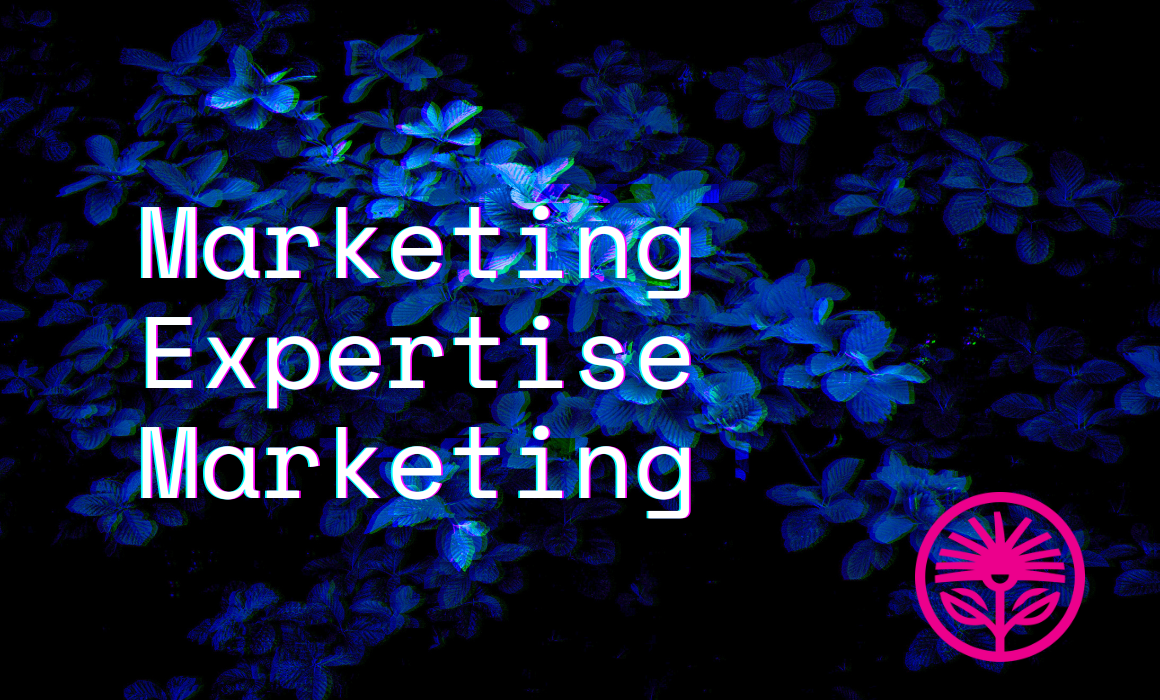Marketing Expertise Marketing — Kelford Labs Weekly
Marketing makes you better.

My plan for this week’s newsletter was to write about “marketing expertise,” or how you can promote yourself as an expert in your field more effectively.
But, it turns out, there are two ways to think about the concept of “marketing expertise.”
1) There’s the act of acquiring expertise in the field of marketing.
2) And then there’s the act of marketing your expertise.
In attempting to parse out this distinction, it became clearer and clearer to me that they’re actually directly connected.
Marketing our expertise and gaining expertise are two distinct acts that actually amplify and reinforce each other.
So that’s exactly what we’re going to look at this week: How getting better and better at marketing your expertise can actually make you more of an expert.
To do that, we’re going to break down the idea of “expertise” into three components:
Patterns, People, and Progress.
Patterns
“No one would expect to play good tennis or piano through extensive reading without practice, let alone through ‘looking it up.’ It is the same with mental disciplines. The larger view, and effective selection among possibilities, depends on becoming so familiar with the elements that they no longer require close attention.”
— John H. Holland, Emergence
Expertise is one of the results of effective pattern recognition.
Like David C. Baker wrote in The Business of Expertise, “Without pattern matching, there is no intelligence. Without similar scenarios, there is no pattern matching.”
To become an expert in anything, we need to have acquired, through dedicated practice, an ability to recognize and understand the patterns of our field of study.
We need to acquire a “fingertip feel” of our business, our industry, and what our customers want. Our intuition needs to be trained to notice what’s important without getting distracted by what isn’t.
In short, we need to train our intuition, which, as Gary Klein wrote in Sources of Power, “depends on the use of experience to recognize key patterns that indicate the dynamics of the situation.”
Expertise is downstream of experience. Which is downstream of focusing, so we can gain continued experience with similar patterns.
Marketing: Your marketing gets more effective when you focus on the patterns you’ve identified in your field and your work. By demonstrating your experience with those patterns, you demonstrate your expertise in your industry.
Expertise: And because your marketing is focused on sharing and explaining those patterns, you’ll get better at recognizing them in your work. By demonstrating your experience, you’ll gain more and more of it.
People
“Writing is one method for sharing your ideas, but it’s not the only one; you can give speeches, or conduct webinars, or host a podcast, or create online video tutorials. The key is to make yourself ‘findable’ by the people you’d most like to do business with.
That involves just a little bit of bravery.”
— Dorie Clark, The Long Game
To demonstrate our expertise we’ve got to deliver it in some way. I talk about writing a lot because I’m a writer, but it’s not the only way.
The point is that people need to experience a bit of our expertise to understand that we have it. To believe that we’re credible and that we can be valuable, we need to add value.
But talking to people about our experiences and expertise does more than simply promote or market it.
At the same time, it helps us build it.
Because by understanding our customer and how they experience our value, we’re given clues to what to prioritize in our own learning. We’re led to what we should focus on by learning what our customers want more of.
Like Ton Dobbe wrote in The Remarkable Effect, “It’s about relevance — nothing else. The more relevant you appear in the eyes of your ideal customer, the bigger your success.”
Marketing: Sharing what you’ve learned with your audience and prospects demonstrates to them that you’re always learning, always improving. You invite your prospects to learn along with you, and you gain valuable insight from their feedback which makes your marketing better.
Expertise: Writing a blog will make your own thinking clearer. Guesting on a podcast will help you understand where to focus. Gaining experience sharing your insights with other people will increase your expertise in finding and focusing on those insights in your work.
Progress
“A good writer should know as near everything as possible.”
— Ernest Hemingway
One of the things that separates a true expert from someone who just knows the terms or trivia about a topic is their ability to keep learning.
Experts can integrate new information, new facts, and even new feelings about a subject into their worldview faster and more efficiently than amateurs.
But that means the most benefits will accrue to experts who go deeper into the sources, and get closer to the real facts, than ones who let others do their learning for them. A true expert doesn’t get their information from viral TikToks or courses offered by LinkedInfluencers.
As Leonardo da Vinci said, someone who “can go to the fountain does not go to the water jar.” As experts, we can go straight to the source, the primary documents and the first principles.
But we are the water jar for our customers and prospects, we are the portable and convenient deliverer of insights for the people who don’t have the time or speciality to learn what we can learn.
It’s our job to interpret and explain it to them.
And then, the more we learn about our subject, the better we’ll get at the learning process. The more skilled we’ll get at communicating our progress.
And the more interesting we’ll become to the people who can learn from us.
Marketing: By sharing your own learning process, you’ll get better at making your ideas appealing and interesting. You’ll learn how to take the big ideas you’ve developed and make them more digestible and actionable.
Expertise: And because you’re sharing what you’ve learned, you’ll be intrinsically motivated to keep learning. You’ll hate the feeling of falling behind, or losing your edge, so you’ll keep learning, interpreting, and sharing what you’ve learned. Which will make you more of an expert.
Marketing Expertise Marketing
Getting better at marketing your expertise can help you become more of an expert.
By recognizing patterns in our field, we get better at pointing out those patterns to our customers. That, in turn, demonstrates our experience in the field which adds credibility to our expertise. Conversely, if we can’t recognize patterns in our work (because it’s too scattered or unfocused), we can’t demonstrate them.
So, we need to focus on finding patterns, which means focusing our efforts and the scope of our work on what our customers find most valuable.
We need to share what we’ve learned with others, and benefit from their feedback on how we’re sharing it and what we’re learning about.
And then we need to keep learning, keep progressing, so our audience, prospects, and customers can benefit from our experience and recognize us as a true expert.
Because marketing is not just something we do after we’ve learned.
In many ways, it’s how we learn.
Kelford Inc. shows entrepreneurs the way to always knowing what to say.



